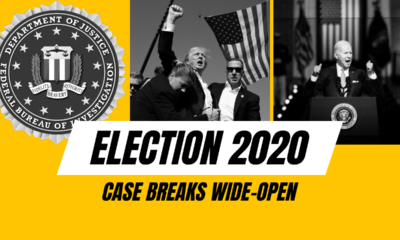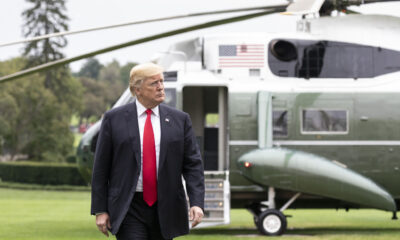Let's Talk
Twitter bows to Elon Musk
The Twitter war with Elon Musk ended yesterday when its board approved a buyout plan. The world waits to see what’s next.
Twitter will become an Elon Musk company! The board of directors decided that in overnight negotiations. The founder hails the decision, but many members of current staff hate it.
Elon Musk buys Twitter
Elon Musk yesterday finished negotiating with the Twitter board of directors to buy the company outright. He has secured $44 billion in financing and will pay each shareholder $54.20 US per share.
This brings to an end a war that saw a State governor – Ron DeSantis (R-Fla.) – threatening to intervene. Most State governments have pension plans for government employees, and Florida is no exception. Hence Florida had invested a lot in Twitter and would not care to see the board compromise that investment with a “poison pill.” Nor did the Board have a stronger case, seeing that they owned 77 shares among them, except for Jack Dorsey’s share. Jack Dorsey, who founded the company, was about to leave the Board.
Reaction by staff and some users has been swift – and very overwrought, to say the least. Paywall articles are available at The Washington Post and The New York Times. But this article at CNAV details some of that reaction. Talmon Joseph Smith, economics reporter at The New York Times, shared some of it yesterday:
“I feel like I’m going to throw up”? “I feel like he’s this petulant little boy and that he’s doing this to troll”? Boo fornicating hoo. That employee is the real troll, because this is what trolls do: throw off on the other guy.
High-level reaction
Jack Dorsey doesn’t feel that way. He loves this deal, as we hear from The Verge and The Guardian. To be more accurate, Jack Dorsey thinks Twitter needs to be some kind of public trust. But if anyone had to own it, he trusts Elon Musk more than anyone else.
Solving for the problem of it being a company,… Elon is the singular solution I trust. … Elon’s goal of creating a platform that is “maximally trusted and broadly inclusive” is the right one. That is also [Parag Agrawal]’s goal, and why I chose him. Thank you both for getting the company out of an impossible situation.
Actually, Jack Dorsey read Parag Agrawal totally wrong. He never intended that Twitter be “broadly inclusive,” because he sought to exclude conservative voices.
Laura Loomer, now running to get back into Congress, put the matter bluntly on her Telegram feed. Looking to Elon Musk as some kind of white knight does not satisfy her. She of course intends to repeal platform protections under Section 230 of the Communications Decency Act. More than that, Twitter threw her off the platform, and she resents it. Nor does she see a change of ownership as sufficient to solve the problem.
Andrew Torba at Gab.com is furious. He subscribes to the theory of Elon Musk as Trojan horse. And he reminds everyone that his infrastructure, down to the server farm, is independent, whereas Twitter’s isn’t.
What next for Twitter?
The deal to buy Twitter and take it private has gone no further than the Board approval stage. Buying out all the outstanding shares could take months. Of course, in approving the deal, the Board killed the poison pill. The company will issue no more shares, nor let anyone buy in at a discount.
The three Top Twelve Other-than-Elon investors most likely to balk – if they can – are Vanguard, Blackrock, and House of Saud. The first two are known Deep State players, and a certain Saudi prince has made his displeasure known. But they turn out to be the only ideological players among the big shareholders. Everyone else must have just wanted to take the money and run. That included Morgan Stanley, who helped Elon raise his cash.
Donald Trump will not rejoin Twitter. He is building his own platform, and he’s probably one of those “this platform isn’t big enough for both of us” kinds of guys. Laura Loomer will continue her campaign for Congress without using Twitter as a platform.
At last check, Twitter still has in place its usual rubber-law pabulum about “community standards.” One can read that, for instance, in their guidelines for obtaining verification – the Blue Checkmark. Gab, for instance, has a much simpler verification method: drop a tweet on Twitter, let them know about it, and they’ll consider it. User verification and content moderation are two of the issues Elon Musk pledged to address.
CNAV policy
As a matter of policy, CNAV hid the Twitter sharing button. We made a judgment that Twitter would likely disallow our content, anyway. So before we un-hide the button, we’re going to wait and see what Elon Musk does. Will he fire Parag Agrawal and all those admin bullies under his command? Will he make the algorithm open-source, as he also promised, and make “shadow bans” contrary to policy? If he does, Twitter will be worth coming back to. If not, not. That’s his call.
Terry A. Hurlbut has been a student of politics, philosophy, and science for more than 35 years. He is a graduate of Yale College and has served as a physician-level laboratory administrator in a 250-bed community hospital. He also is a serious student of the Bible, is conversant in its two primary original languages, and has followed the creation-science movement closely since 1993.
-

 Accountability2 days ago
Accountability2 days agoWaste of the Day: Principal Bought Lobster with School Funds
-

 Constitution2 days ago
Constitution2 days agoTrump, Canada, and the Constitutional Problem Beneath the Bridge
-

 Executive22 hours ago
Executive22 hours agoHow Relaxed COVID-Era Rules Fueled Minnesota’s Biggest Scam
-

 Civilization22 hours ago
Civilization22 hours agoThe End of Purple States and Competitive Districts
-

 Civilization4 days ago
Civilization4 days agoThe devil is in the details
-

 Executive4 days ago
Executive4 days agoTwo New Books Bash Covid Failures
-

 Civilization4 days ago
Civilization4 days agoThe Conundrum of President Donald J. Trump
-

 Executive4 days ago
Executive4 days agoThe Israeli Lesson Democrats Ignore at Their Peril














